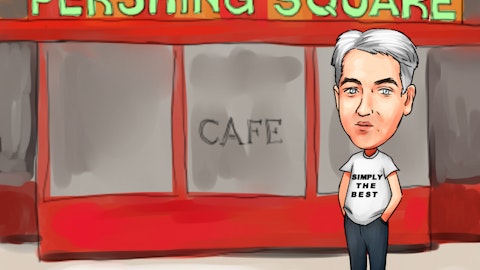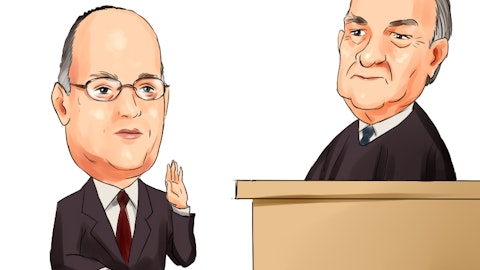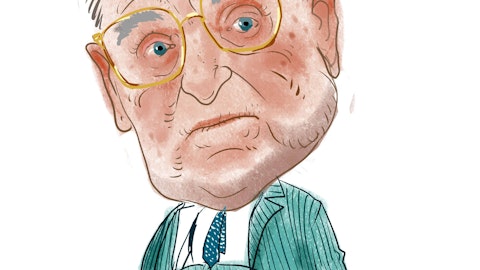Hedge Fund Managed by Star Opens to Institutions (WSJ)
A star mutual-fund manager is opening up his nascent hedge fund to institutional investors. Bruce Berkowitz, the 55-year-old president of Fairholme Capital Management LLC, launched the fund on Jan. 1 and it has grown to $140 million, largely with money from Mr. Berkowitz and his employees. He is now seeking outside institutional investors and hopes the fund will grow to $1 billion in assets in a year. His goal: Amplify his strategy as a mutual-fund manager of making long-term, concentrated bets. The strategy has been a big success, though he stumbled badly in 2011.

Is Apple Destined To Become The Next Microsoft? (TheStreet)
Apple Inc. (NASDAQ:AAPL) share price has been on the rebound ever since Carl Icahn‘s now-infamous tweet reignited interest in the company. Still, the stock is down 30% from its all-time highs it hit last year, and there is a general consensus that the company’s days of rapid growth are behind it. A common question I hear asked is whether Apple is destined to follow in Microsoft Corporation (NASDAQ:MSFT) footsteps, suffering years of underperformance. Microsoft, like Apple, once held the distinction of being the most valuable company in American history. (And adjusted for inflation, Microsoft’s 1999 high-water mark still holds the title.) Today, Microsoft’s share price is still 40% below its dot-com-era peak… 13 years later. Ouch.
Has Disney Lost Its Magic? Hedge Fund Trading Lesson Featuring Brett Favre (Business2Community)
The Walt Disney Company (NYSE:DIS) has been on a magic carpet ride and currently sits near its 10 year high. This fairytale of a stock has name brand recognition and box office appeal. You love it, your kids love it and guys secretly love it. But has Disney lost its magic? Today’s installment from the series, ‘Trading Lessons From A Hedge Fund Trader’ will focus on Brett Favre’s career and The Walt Disney company (NYSE:DIS) as per our reader’s request for research, available here on BehindWallStreet.com.
Hedge fund exits Unilens (BizJournals)
Unilens Vision paid $3.1 million to repurchase the shares of Baker Street Capital LP, a Los Angeles-based hedge fund that was the company’s largest outside shareholder. Vadim Perelman, founder and managing partner of Baker Street, also resigned from the Unilens board of directors, effective Oct. 4. Perelman had been an investor in Unilens since 2010, and Baker Street controlled about 26 percent of the company’s total shares outstanding, a statement said.
Hedge fund legend Soros insists on Greek debt haircut (DW)
US large-scale investor George Soros (pictured) told Germany’s “Spiegel online” business editors that another international debt haircut for crisis-stricken Greece was inevitable. “Everyone knows the country will never be able to pay back its debt,” Soros insisted. He said his talks with business partners had convinced him that private investors would be willing to return to Greece once the repayment of public debt was off the table. This, he argued, would allow the country to recover fast. But it’s been the outgoing German government in particular which has refused to even talk about another write-down on Greek debt.
Ahead of the curve? Paulson takes stakes in Greek banks (InvestmentWeek)
Paulson (pictured) and other hedge fund managers have bought in to the Greek banking sector and are pushing for a faster reprivatisation of some of its leading players, according to reports. The high-profile investor told the Financial Times he has “substantial” stakes in Piraeus and Alpha, both of which are 80% owned by the government following a fresh round of recapitalisation earlier this year.
Hedge funds facing shake-up in wake of Madoff scandal (Independent)
THE Irish fund administration sector is set for a major shake-up as hedge funds adapt to the post-crisis, post-Madoff era, according to new research. The study by State Street surveyed 400 hedge fund managers in North America, Europe and Asia for their view on industry changes coming over the next five years. Increasing regulation is one driver of change for the hedge funds industry, but the main catalyst for change is investors seeking greater transparency over how their assets are being managed, the survey found.
Insult to injury? Hedge fund loses $1M, then fires Pennsylvania (Philly)
The Pennsylvania State Employees Retirement System sent a quarter of a billion dollars to Tiger Management, the hedge fund group founded by investment pioneer Julian Robertson, in hopes of pulling down stock-market-like returns with bond-like low volatility, as its chief investment officer put it. Instead, Tiger lost money. SERS offered to give Tiger another chance. No, said Tiger: The hedge fund fired SERS and is sending the money back, minus $1 million it lost.
Hedge Funds Expand Bets With Most Junk Since ’08: Credit Markets (Bloomberg)
Hedge funds have amassed the greatest share of the $1.2 trillion U.S. junk-bond market since the credit crisis, raising concern bets with borrowed cash will accelerate losses when the Federal Reserve stops printing record amounts of money. The funds, which typically use leverage to bolster returns, hold as much as 23 percent of outstanding dollar-denominated high-yield bonds, from as much as 18 percent last year and the highest since 2008, according to Barclays Plc. Credit hedge funds have boosted assets by 89 percent since 2008, outpacing the 66 percent growth of the junk market, data from Hedge Fund Research Inc. and Bank of America Merrill Lynch indexes show.
Hedge Fund Canosa Said to Double Assets in Five Months’ Trading (SFGate)
Canosa Capital LLP, the hedge-fund manager started by two former Rubicon Fund Management LLP executives, more than doubled assets under management since trading began May 1, said two people with knowledge of the fund. Canosa, founded by Tim Attias and Santiago Alarco in partnership with Brummer & Partners, began with $272 million in assets and had about $575 million at the end of September, said the people, who asked not to be identified because the London- based firm is private.
Using Twitter to Move the Markets (NYTimes)
Last week, while everyone was wondering what Twitter is worth after the unveiling of its I.P.O., I spent some time on a little different math. How much could a single post on Twitter be worth? How about $1 billion? Or maybe $6 billion? If the post comes from the fingertips of Carl C. Icahn, the hyperactive hedge fund manager, an argument could be made that there’s gold in those 140 characters. We’ll unpack that value chain in a minute. First let’s stipulate that unless you are a day trader, much of the business news right now is boring.
Jim Rogers, The Commodities Boom Is Not Over (LiveTradingNews)
Jim Rogers, ‘the Chinese-driven commodity boom is not over.” Savvy commodities analysts and participants including Jim Rogers have seen long-running Bull Markets stumble, falter and end, and some not so savvy folks try to predict their end, mostly missing the call. Instead of ending, the Bull Markets turned into a “frenzy” that finished in a “bubble.” “I haven’t seen the frenzy yet,” say Mr. Rogers, who correctly predicted this Chinese-driven a commodities boom. ”I’ve been around markets long enough to know that when everybody’s on one side of the boat, it’s probably not the right side to be on.
Recommended Reading:
Knight Capital Reports a Small Stake in U.S. Wireless Online





